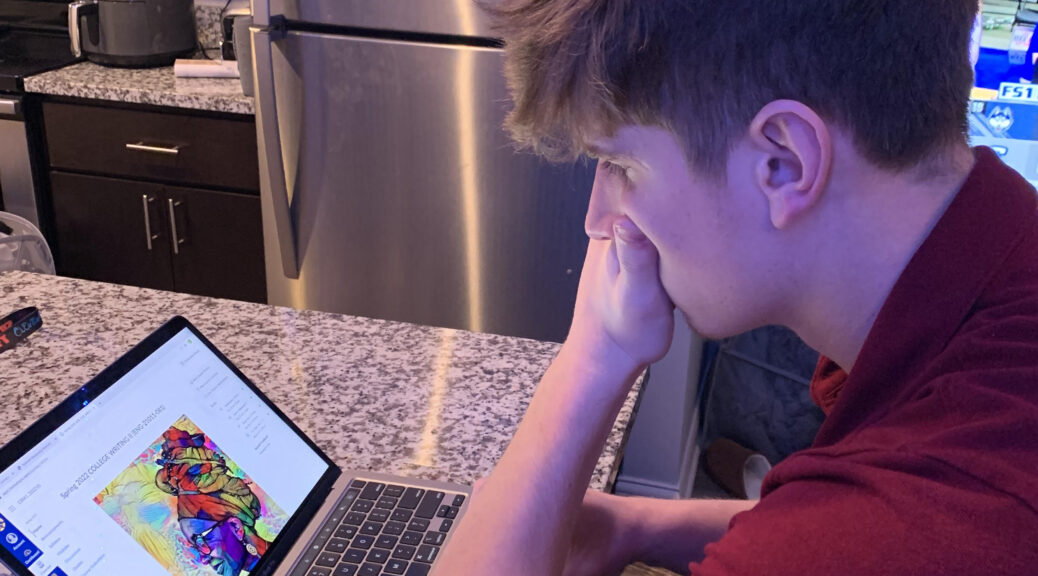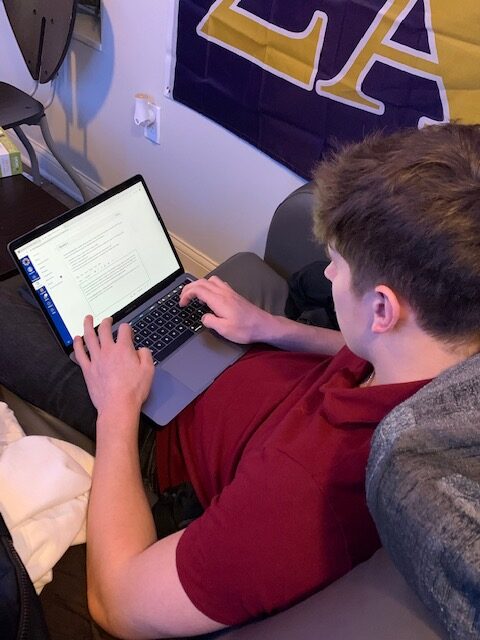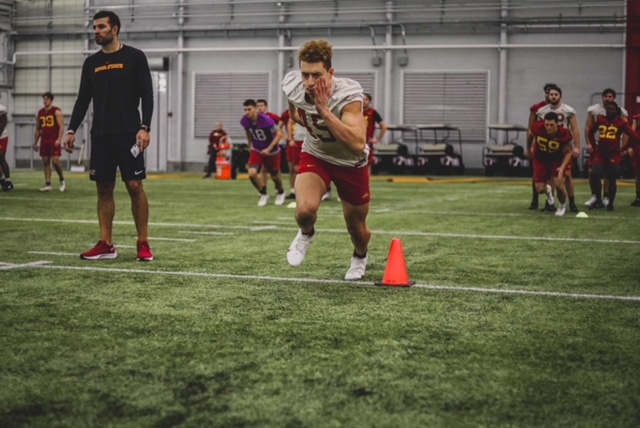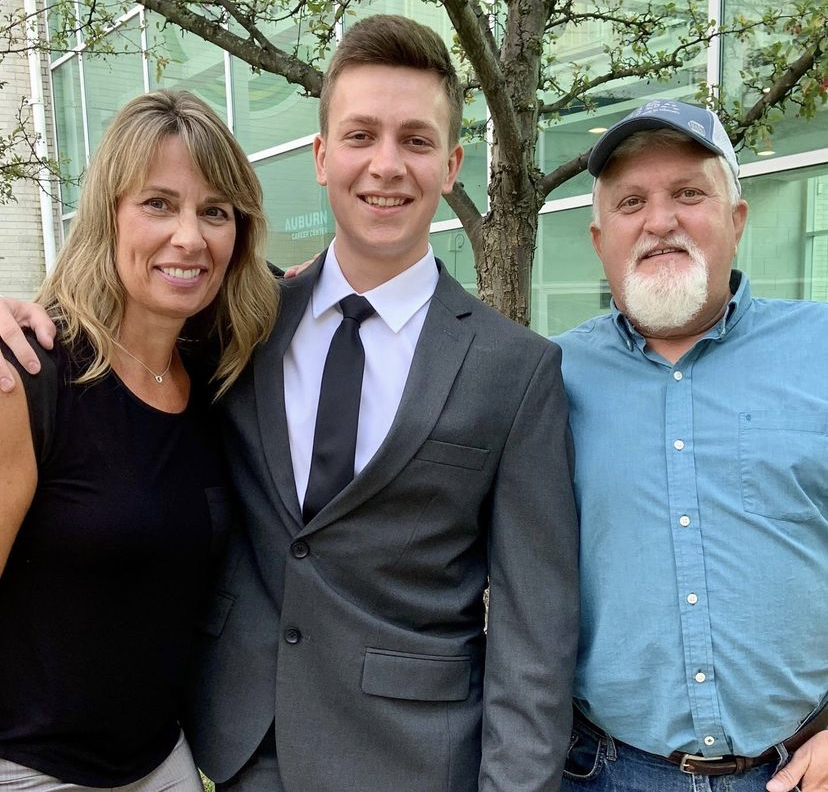
Student-Athletes’ mental health is one of the least talked about subjects and is affecting young women and men daily.
Myles Mendeszoon is a division-one football player for Iowa State who puts his schoolwork first. Mendeszoon understands how hard it is to keep up with work and practice all while maintaining a healthy lifestyle and positive mental state.
“Mental health is a huge factor in any collegiate sport,” Mendeszoon said. “Just look at the number of kids that quit their sport within the first year. Mentally sports can hurt you and affect the reason you are at school (grades). I think that colleges need to start offering to counsel athletes more.”
Myles has been in sports for as long as he can remember and wouldn’t have it any other way. Mendeszoon uses the stress of long days of athletics to his benefit. Exercise and the social aspects outway the negatives.
“When you can look around and see almost 100 guys who care about you as a person and not just another guy, it means something,” Mendeszoon said. “I think the biggest thing is time management and not overdoing yourself. Once you get to college for a sport you know just what your body and mind can take. If you push that limit you are only setting yourself up for failure. If I didn’t have strong bonds with my brothers this life would be miserable.”
https://www.christiecampus.com/stay-informed/blog/april-2021/college-athlete-mental-health-article
Sports Medicine Expert Clayton Gallion also sees the trends with student-athletes. Starting all the way back in high school you can see the issues that could trend at the next level.
“Kids that are very stressed in high school will go onto college for athletics and be miserable,” Gallion said. It takes a very strong mental state to balance athletics and school work. Meanwhile, we aren’t even including family life and all the other daily issues people go through.”
The depression and suicide rates are at an all-time worldwide high. Unfortunately, they seem to be only rising and teens feel they have no way out. The added-on stress of sports and how certain athletes are treated can be the breaking point.
“Sports can be the great equalizer and unifier for these kids,” Gallion said. “When you’re on a team you are a part of something bigger than yourself. A brotherhood or sisterhood that will last a lifetime. Colleges need to have some type of counseling for athletes and be understanding of how much stress they are put under.”
College student-athletes often keep playing for their families and not themselves. Nobody wants to disappoint their parents and if that means continuing a sport you no longer love that’s what happens.
John Dinko division-three football player for Case Western and a near 4.0 student. Dinko understands the hardships of balancing school and athletics but has days where he feels alone.
“Coming out of high school I was the defensive player of the year for my division, Dinko said. “Coming to college you’re no longer the top dog or most popular and it’s a shock. It humbles you but can also send you in a short depression. One thing for me is I know if I stay on top of my school that my life will turn out great.”
Dinko also has had times of low mental state where he would make jokes he’d rather be hurt than play any more football.
“I look around and see all my friends partying and making memories and here I am at 5 am running and then a 7 am class,” Dinko said. I used to make jokes that I would want to get hurt just to get away from the game, I was never serious of course. The main reason I still play is to keep my father happy. If it wasn’t for him I’d of hung up my cleats years ago.”
It’s very rare to see college athletes stay committed to their sport and play for more than two years in college. Either the workload becomes too much or their mental health can’t handle it anymore. Some simply lose their passion for the sport and it’s more of a burden than anything.
Brady Toth was a formal division-one football player for Akron University and quickly left and transferred to Kent State after he realized how dragging the sport would be on his mental health.
“I prayed and talked with my family about what was best for me,” Toth said. “I ultimately decided to quit the game I loved was best for me mentally and would help me jumpstart my career. It hurt but I couldn’t do the early practices and weekend practices along with my work schedule and school. After the first week I was mentally drained and wanting to be done with school in general.”

Each athlete has their story and to the ones that can balance work, school and their respective sport is a blessing.
“It puts things in perspective for these kids,” Gallion said. “You quickly find out how much you love this sport and what your true life goals are. Most of these kids aren’t going pro in their respective sport so eventually, you have to put your mental health and school work first.”
Athletes go through enough mental strain within their sport. Some coaches treat the players wrongly and it only adds to it. Whether you love the sport or not, when you combine school and everyday life it can become depressing. Student-athletes are what brings our colleges the most revenue and we need to help them in any way we can. You never know what anyone is going through in life.




